HELP US BETTER MEET YOUR NEEDS BY TELLING US A LITTLE MORE ABOUT YOURSELF
Cocaine Detox
Cocaine is an illegal stimulant drug that is extracted from the leaves of the coca plant. It is considered highly addictive and extremely dangerous to those who use it. Cocaine produces its powerful effects by stimulating the body’s central nervous system. The drug often comes as a white powder that is often mixed with other items such as:
- Sugar
- Cornstarch
- Vitamins
- Flour
Crack cocaine typically comes in the form of a processed rock crystal shape and is sometimes an off-white or pink color. This variation of cocaine is most often smoked using a pipe. Given the lower purity level and wider potential for being laced with other hazardous chemicals, the user may experience different, dramatic symptoms. Cocaine can be consumed by being:
- Injected
- Taken orally
- Smoked
- Sniffed
- Snorted
- Suppository
Like other stimulant drugs, cocaine usually causes a strong sense of exhilaration. Cocaine users generally feel carefree, alert, euphoric and energetic. The effects of cocaine usually last around two hours depending on how much is used.
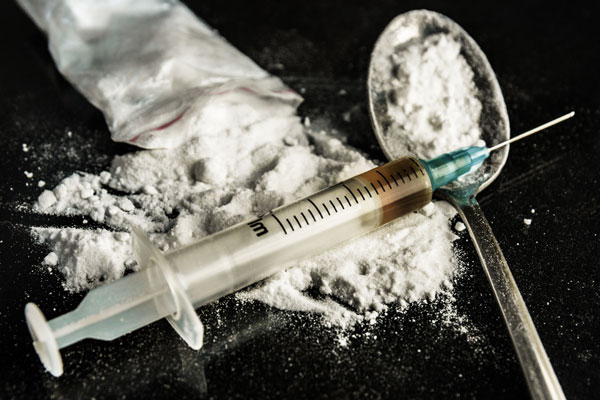
Cocaine Facts
Cocaine is the second most commonly used illicit drug in the United States.

Data from 2012 shows between 14 and 21 million people use the drug each year.

Between 1% and 3% of people in the developed world use cocaine at some point in their lives

Effects of Cocaine Use
The effects of cocaine use often activate within seconds to minutes of use. While cocaine is recreationally used for these properties, other short-term and long-term effects of cocaine are equally dangerous.
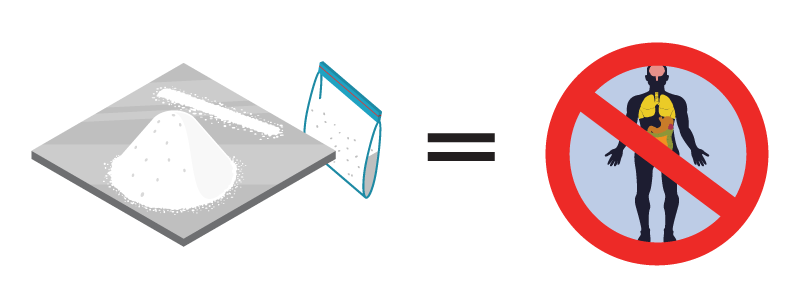
Mental Effects
- Loss of contact with reality
- Intense feeling of happiness or agitation
Physical Symptoms
- Fast heart rate
- Sweating
- Large pupils
Dangerous Effects
- Insomnia
- Itching
- Vomiting
- Irritability
- Nasal infections
- Chest pain
- Hallucinations
- Rapid breathing
- Nose Bleeds
- Twitching
- Bruxism or grinding teeth
- Constricted blood vessels
Chronic intranasal use can cause degraded cartilage in the septum nasi that separates the nostrils. Cocaine abuse also greatly adds to the risk of developing rare autoimmune diseases or diseases relating to connective tissue, such as:
- Lupus
- Goodpasture syndrome
- Vasculitis
- Glomerulonephiritis
Cocaine use also contributes to risk of kidney diseases and kidney failure. The list of devastating and painful results of cocaine use is long, and one of the worst side-effects of cocaine use is dependence and addiction.
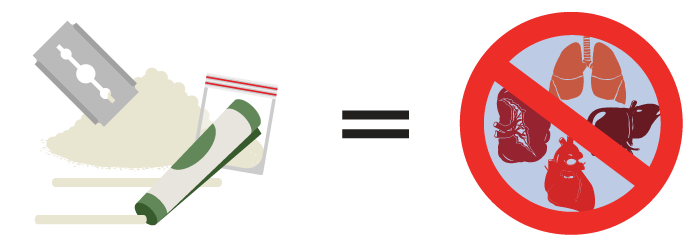
Cocaine Psychosis
Those who struggle with cocaine abuse and addiction also have a tendency to experience a condition known as severe paranoia, which is a state of temporary extreme paranoid psychosis. In this state of psychosis caused from cocaine use an individual will lose touch with reality and experience auditory hallucinations.
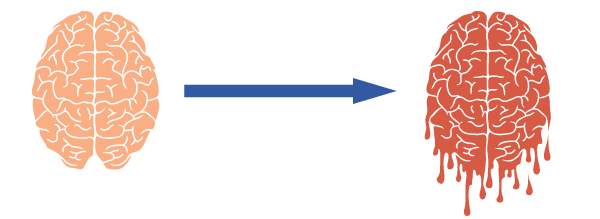
Cocaine Addiction
Cocaine is exceedingly addictive due to its impact on the reward pathway of the brain. Even after a short period of use, cocaine leaves its users with an intense craving to do more and creates a high risk of dependence. The drug acts by increasing the levels of chemicals in the brain such as:
- Serotonin
- Norepinephrine
- Dopamine
This causes higher concentrations of these neurotransmitters in the brain. Chronic cocaine intake causes strong imbalances of transmitter levels in order to compensate for the extremes it creates in the body. All this can contribute to an increase in tolerance making larger, more dangerous doses necessary for the same effect. This makes it incredibly difficult for those who are addicted to cocaine to ever stop or to control their use. Addiction to cocaine and continued use greatly increase other severe health risks.
Severe Health Risks
- Stroke/Nervous system problems
- Myocardial infarction
- Lung problems (when smoked)
- Respiratory failure
- Severe allergic reactions
- HIV/Blood infections
- Heart problems/Heart attack
- Sudden cardiac death
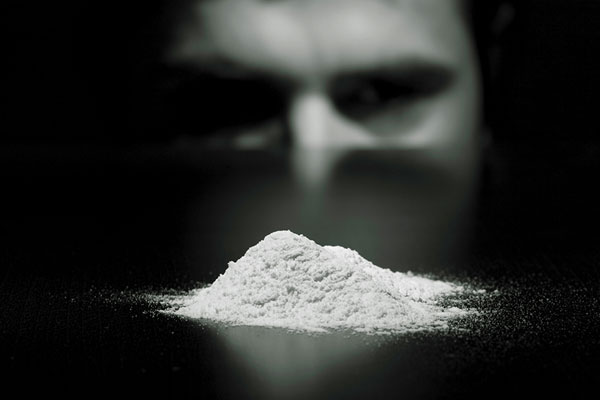
Cocaine Intoxication and Death
Cocaine is an especially deadly drug. It is commonly used with other drugs or alcohol, which only increases the risks. Because cocaine is so highly addictive, it is significantly more dangerous than other stimulants. When discussing overdose, a common term used is “intoxication” which expresses the immediate complications of too much cocaine in the system.
Some have estimated the minimal lethal dose of cocaine as 1.2 grams, but some with hypersensitivity have died from as little as 30 mg. The tolerance level of the individual makes all the difference. Pre-existing health conditions also make an impact on the amount that can cause cocaine intoxication. One unique aspect of cocaine is that certain qualities of the drug make it cross the blood-brain barrier quickly, which can cause a complete brain shutdown.
Cocaine Overdoses Cause
- Hyperthermia
- Elevation of blood pressure
- Arrhythmias
- Death
Cocaine Statistics
A recent CDC report revealed that heroin and cocaine are the illegal drugs most frequently involved in overdose deaths in the US.


An analysis from U.S. News and World Report revealed that cocaine is the second most common illegal drug involved in fatal overdoses.
National Center on Health Statistics states:
- Cocaine overdose death in 2015- 6,784
- Male overdose deaths in 2015- 4,885
- Female overdose deaths in 2015- 1,899
The reality is, even small amounts of cocaine can kill at any time. Someone who experiences a cocaine overdose and survives may still suffer permanent brain injuries.

NEED HELP IMMEDIATELY
Call
1-888-934-7256
Cocaine Withdrawal
Cocaine detox is the first step into a cocaine treatment and eventually leaving a cocaine addiction behind for good. For the most part cocaine addiction is psychological and not physical like an opioid addiction would be. There are symptoms of cocaine withdrawal that cocaine detox can help with.
There are no government-approved medicines that are able to cure cocaine addiction, however behavioral therapy may be used to treat cocaine addiction.
Cravings for cocaine can be exceedingly overwhelming during cocaine withdrawal. A stable medical detox offers the individual a safe place during this withdrawal period to remain comfortable and supported.
Cocaine Withdrawal Symptoms
- Headaches
- Irritability
- Paranoia
- Fatigue
- Insomnia
- Restlessness
- Nightmares
- Depression
- Increase in appetite
- General malaise
- Craving to use more cocaine
Cocaine Addiction Detox
Detox for cocaine addiction can make a huge difference for the user by helping with any and all of the cocaine withdrawal symptoms. Detoxing from any drug can be a very tough thing to go through. Given the intense nature of the addiction and the pains of the withdrawal process, medical detox should be designed to promote physical wellbeing and emotional support.
The first step in the process of getting off cocaine and on an effective path to recovery is the
During this stage, you will be assessed in order to design a recovery plan based on your intake of the drug, as well as any other health conditions or dual diagnosis disorders that may have an impact on your progress.
A well-trained and professional staff will help the individual transition smoothly through the phases of the treatment program. Because of the adverse effects cocaine addiction can have on the body and mind, detox can be the crucial factor for a safe and healing start to recovery.
Cocaine Drug Treatment
- Cognitive behavioral therapy
- Group and individual counseling
- Family therapy
- Holistic therapies
- Life coaching
- 12-step program meetings
- Relapse prevention
- Aftercare programs

Palm Healthcare Company
1177 George Bush Blvd.
Delray Beach, FL 33483
888-934-7256
Joint Commission accreditation and certification is recognized nationwide as a symbol of quality that reflects an organization’s commitment to meeting certain performance standards.



